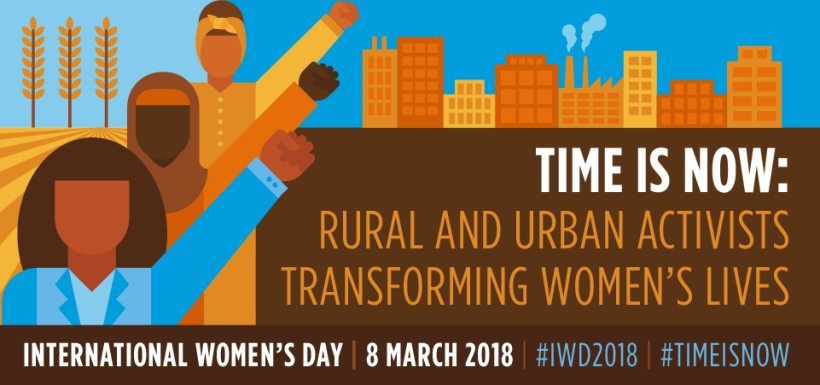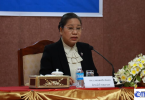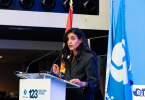International Women’s Day provides a forum to hold tough conversations about women’s rights, equality and justice. Gender discussions are not an easy conversation to hold. Particularly in part due to movements that have been born of sexual harassment.
This International Women’s Day 2018, celebrated on Thursday 8th March, we are celebrating women who have played a conservationist role in Kenya. Women who have reshaped the misconceptions around nature and wildlife. These activists have transformed the lives of rural and urban women all the while conserving their environment.
1. Paula Kahumbu
The African Elephant is consistently dwindling in numbers albeit being listed in the Endangered Species Act since 1979. This is due to ivory trade causing the slaughter of 30,000 elephants each year.
Dr. Paula Kahumbu, the founder of WildlifeDirect and the brain behind ‘Hands off Our Elephants’, has spearheaded a call on the ban of all ivory trade, legal or illegal.
In her scientific studies of the elephant in the Coast Region, she says “What we are discovering through laborious field observations and complicated statistical analyses, is that these majestic giants which have a brain, (just as if not more complex than our own) have social lives, communication skills and compassion for their own and other creatures that far exceeds our own”.
2. Maridah Khalawa
More than half of the women population in Kenya reside in the rural areas. These women ensure food security for their families and for the nation. Yet due to inequalities and disparities, they are often surpassed by development projects that their urban sisters enjoy.
Maridah Khalawa founded Muliru Farmers Conservation Group where the women members could gain more knowledge on how to generate income from non-forest activities. Majority of the group is made up of women who no longer have to rely on farming to sustain their families. Additionally, part of the revenue goes into conservation efforts of the last remaining part of Kakamega Rainforest.
She says of her project, “One of our initial conservation goals was to do things beyond the traditional way, using modern technology and embracing partnership with other interested organizations”.
3. Wangari Maathai
The change in climate has caused a significant drop in global water supply. Caused by reduced rainfall hence affecting food security. The prolonged drought in Kenya has seen a radical awareness among the public of the widespread deforestation. The satellite images show the prevalent desertification over the years.
Wangari Maathai led the activism in protecting indigenous forests across the country. As the founder of Green Belt Movement, she was the first African woman to receive the Nobel Peace Prize Laureate.
In addressing illegal encroachments, deforestation and livestock grazing, she said, “Today we are faced with a challenge that calls for a shift in our thinking, so that humanity stops threatening its life-support system. We are called to assist the Earth to heal her wounds and, in the process, heal our own – indeed to embrace the whole of creation in all its diversity, beauty and wonder.”
The theme for this year’s International Women’s Day is “Time is Now: Rural and urban activists transforming women’s lives”. In his address, Zurab Pololikashvili, the Secretary-General of the World Tourism Organization (UNWTO) called upon the global tourism community “to maximize every opportunity to raise awareness of gender inequality in tourism”, saying it will help mainstream gender issues in tourism policies and strategies.






